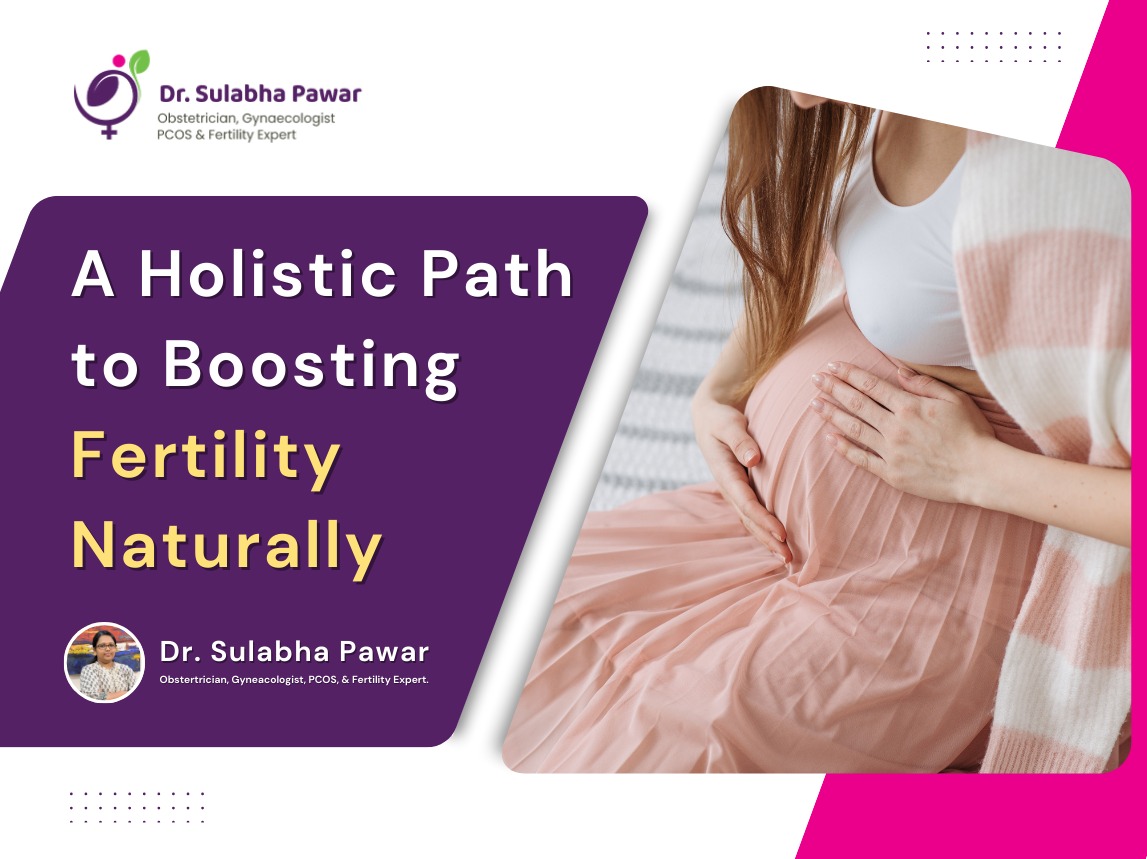A Holistic Path to Boosting Fertility Naturally
When it comes to fertility, many people focus on medical treatments like IVF or medications. However, there’s a broader, more natural approach that can be just as beneficial—holistic fertility. This method looks at your entire lifestyle—mind, body, and environment—to create a balance that supports conception.
Let’s explore how adopting a holistic approach can boost your fertility naturally.
What is a Holistic Approach to Fertility?
A holistic approach to fertility means looking beyond just the reproductive organs. It considers your physical health, emotional well-being, diet, lifestyle, and even your environment. The idea is that everything in your life is interconnected, and by balancing all areas, you increase your chances of conceiving.

Mind-Body Connection
Stress can have a significant impact on fertility. When you’re stressed, your body produces hormones like cortisol that may interfere with the hormones responsible for ovulation and sperm production. Managing stress, therefore, is key to a holistic fertility approach.
How to Manage Stress for Fertility:
- Meditation: Practicing mindfulness and deep breathing can help reduce anxiety and promote emotional balance.
- Yoga: Yoga poses, especially those focused on opening the hips, can boost blood flow to the pelvic area, enhancing reproductive health.
- Counseling: Speaking to a therapist or joining a support group can help manage emotional stress and anxiety related to fertility.

Nutrition for Fertility
What you eat plays a crucial role in your fertility journey. A balanced diet rich in vitamins, minerals, and antioxidants helps support reproductive health for both men and women.
Fertility-Boosting Foods:
- Leafy greens: Spinach, kale, and broccoli are high in folate, a key nutrient for reproductive health.
- Healthy fats: Omega-3 fatty acids found in fish, flaxseeds, and walnuts help balance hormones.
- Whole grains: Brown rice, quinoa, and oats are packed with nutrients that regulate insulin levels, essential for hormone balance.
- Fruits and vegetables: Colorful fruits like berries and citrus fruits are rich in antioxidants, which protect your eggs and sperm from damage.
Physical Health and Exercise
Regular physical activity improves blood flow, helps regulate hormones, and maintains a healthy weight—all important factors for fertility. However, balance is key. Too much exercise can be as harmful as too little.
Exercise Tips for Fertility:
- Low-impact activities like walking, swimming, or cycling can promote circulation without putting stress on the body.
- Moderate strength training can improve hormone balance and maintain a healthy body weight.
- Avoid high-intensity workouts that can lead to hormone imbalances or disrupt ovulation.

Acupuncture and Fertility
Acupuncture has been shown to boost fertility by promoting blood flow to the reproductive organs and balancing hormones. It’s an ancient Chinese practice where fine needles are inserted into specific points on the body.
Benefits of Acupuncture for Fertility:
- Enhances blood flow to the uterus, improving egg quality and uterine lining.
- Reduces stress and promotes relaxation.
- Balances the body’s energy to support reproductive health.
Sleep and Fertility
Quality sleep is often overlooked, but it’s essential for hormonal balance. Lack of sleep can lead to disruptions in your reproductive hormones.
Tips for Better Sleep:
- Create a bedtime routine: Wind down with activities like reading or taking a warm bath.
- Limit screen time: Avoid phones and computers at least an hour before bed.
- Make your bedroom sleep-friendly: Keep the room dark, cool, and quiet to promote deep sleep.
Environmental Toxins and Fertility
Our modern environment is filled with toxins that can affect fertility. From plastics to pesticides, many chemicals interfere with hormone function. Taking steps to reduce exposure to these toxins can help support fertility.
How to Reduce Toxin Exposure:
- Choose organic produce when possible to avoid pesticides.
- Switch to natural cleaning products and personal care items to reduce exposure to harmful chemicals.
- Limit plastic use, especially when heating food, as chemicals like BPA can interfere with hormones.
Emotional Well-being
The journey to parenthood can be emotionally draining. It’s important to prioritize your emotional health during this time. Surround yourself with a strong support system, practice self-compassion, and be patient with your body.
Conclusion
A holistic approach to fertility is all about creating balance in every area of your life—physically, emotionally, and environmentally. While it may take time and patience, these natural methods can help you enhance your fertility and prepare your body for the best possible chance of conception.




